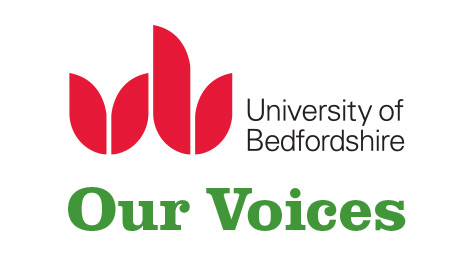Blog: Peer support for young people affected by sexual violence?

There is growing evidence of the value of peer support in the field of mental health (Bellamy et al., 2017[1]). In this sector there is recognition that bringing people together with shared experiences may complement the support provided by traditional mainstream services. Peer support is valued as a mechanism for individuals to develop hope, understanding and strength (see briefing paper 2).
Across different projects and studies at the International Centre, young people affected by sexual violence have shared a desire to have the opportunity to meet and work with others who have had similar experiences. Where young people have had these opportunities, they often reflect on how helpful and powerful these experiences have been.
Due to the lack of documentation and evidence on peer support for young people affected by sexual violence – and interest by young people themselves on this topic – we undertook a study to learn more about peer support. In this context, ‘peers’ are understood to be individuals who have experienced sexual violence and are formally supporting young people affected[2]. Through this research we were able to understand more about the value of peer support for young people affected by sexual violence (see briefing paper 3). We were also able to identify some of the tensions making this form of support challenging for both those providing support (‘peer supporters’) and those staff members developing peer support initiatives within their services (see briefing paper 4).
We interviewed 25 respondents from twelve different organisations/initiatives who had experience of peer support programmes (including peer mentoring) for young people affected by sexual violence in Europe and North America. This included staff members with experience of developing peer support initiatives and ‘peer supporters’, young people providing support to other young people (see briefing paper 1).
It was evident from speaking to respondents that they felt there was great value in providing these forms of support for young people. Respondents emphasised the emotional and social support that peers could provide and noted the unique perspectives and insight provided by an individual with lived experience (for more on the value see briefing paper 3). However, it was also apparent that setting up and managing these forms of support required a great deal of thought and posed a range of potential risks and challenges for all involved.
Employing peer supporters
Respondents highlighted a number of barriers that made it challenging to employ and integrate peer supporters into their organisations and staff teams. Respondents shared how, in some cases, organisational policies had been a barrier to hiring applicants with lived experience. There were cases where applicants lacked certain educational qualifications or had a history within the criminal justice system which could prevent them gaining employment.
The pay rates for peer supporters was another key issue that arose in our interviews. Some respondents shared that peer supporters were often not paid fairly. Respondents felt that peer supporters’ expertise and insights needed to be recognised and valued by organisations in order for them to be paid on equitable terms. Respondents also shared how it was important for peer supporters to be trained and supported to grow professionally, to ensure their professional identity did not remain limited to their experience.
Determining readiness
‘Readiness’ - determining when someone may be ready to formally support others - could also be difficult to assess and yet was critical to get right for all involved. Respondents identified a number of strategies for assessing readiness, which are explored in detail in briefing paper 4.
‘Triggering’
A number of challenges were also identified for ‘peer supporters’. These included the potential to be ‘triggered’ from hearing about others’ experiences of sexual violence or through the expectation to share personal experiences. Respondents shared how vital it was for peer supporters to have accessed support prior to taking on these roles and the importance of them continuing to access support. Respondents identified a number of support mechanisms that they felt could strengthen the continuing wellbeing of peer supporters, these included:
providing ongoing training to peer supporters to help them understand and navigate difficult issues and circumstances;
ensuring peer supporters could access regular supervision;
offering different types of support such as personal coaching and;
supporting peer supporters to access support networks outside of the organisation.
Maintaining boundaries
Respondents recognised a number of other challenges that peer supporters may experience once in the job. Many identified that ‘boundary setting’ was important. Significant boundaries included the importance of peer supporters:
knowing how much to share about their own experiences;
understanding their role as one of supporter rather than professional counsellor or therapist;
recognising the limits of what they can change or fix for a young person;
maintaining boundaries related to contact time and;
balancing being a ‘confidante’ and friend to a young person with safeguarding responsibilities - so knowing what information needs to be passed on to keep that young person safe.
Through their own experiences, respondents were not only able to identify these risks and challenges but were also able to share a number of strategies they had developed to overcome or minimise them (see briefing paper 4).
Respondents noted that the lack of guidance or research in this area made it challenging to develop these initiatives. As more organisations consider how they can develop peer support for young people within their own services, we hope that these briefing papers help fill this gap by highlighting key areas for consideration and further reflection.
[1] Bellamy, C., Schmutte, T. and Davidson, L. (2017) ‘An update on the growing evidence base for peer support, Mental Health and Social Inclusion’, vol. 21(3), pp. 161-167.
[2] ‘Formally’ refers to peers being recruited, supported and supervised by an organisation or initiative to provide this support to young people.






